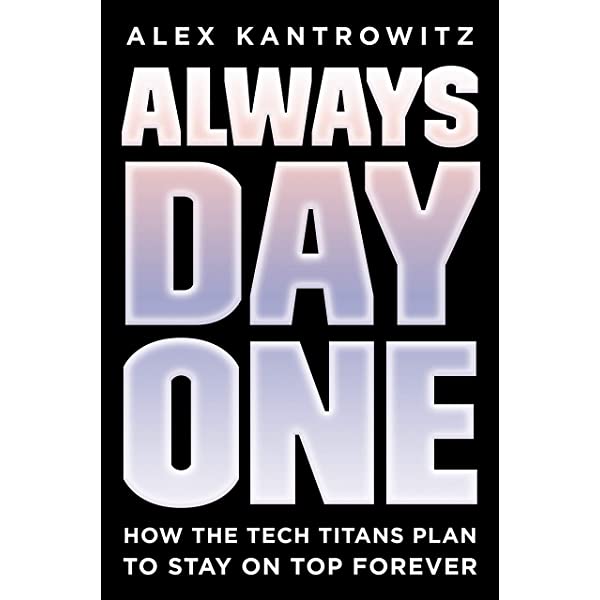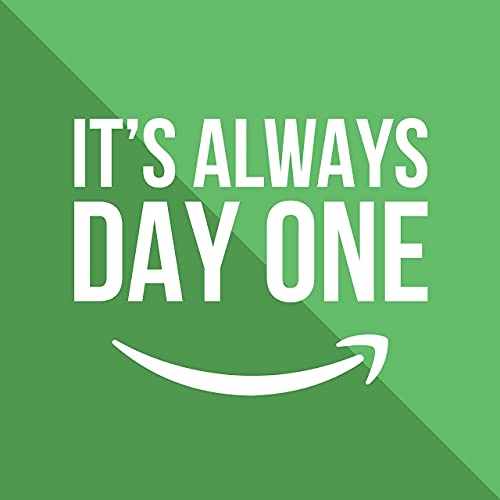In his 1997 annual shareholder letter, Amazon CEO Jeff Bezos outlined Amazon’s “Day One” philosophy: a culture and an operating model that puts customers at the center of everything the company does. Bezos noted
Amazon.com passed many milestones in 1997: by year-end, we had served more than 1.5 million customers, yielding 838% revenue growth to $147.8 million, and extended our market leadership despite aggressive competitive entry.
But this is Day 1 for the Internet and, if we execute well, for Amazon.com. Today, online commerce saves customers money and precious time. Tomorrow, through personalization, online commerce will accelerate the very process of discovery. Amazon.com uses the Internet to create real value for its customers and, by doing so, hopes to create an enduring franchise, even in established and large markets.
Day 1 is about being constantly curious, nimble, and experimental. It means being brave enough to fail if it means that by applying lessons learnt, we can better surprise and delight customers in the future.
In contrast to “Day 2” mentality: as a company grows over time, it needs to adjust its approach to manage the organization as it scales effectively. The danger is that as this happens, decision-making can slow down, and the company can become less agile, moving further and further away from the customer as it rotates focus toward internal challenges rather than external customer-centric innovation.
In a 2018 interview with David Rubenstein, club president of The Economic Club of Washington, Amazon CEO, Jeff Bezos describes the philosophy of Day one and the power of staying nimble:
“It’s Day 1. Everything I have ever done has started small. Amazon started with a couple of people. Blue Origin started with five people and a very, very small budget. Now the budget of Blue Origin is over $1 billion a year. Amazon literally started with 10 people; today it is over 750,000. That’s hard to remember for others, but for me it’s like yesterday. I was driving the packages to the post office myself and hoping one day we could afford a forklift. So for me, I’ve seen small things get big, and it’s part of this Day 1 mentality. I like treating things as if they’re small. Even though Amazon is a large company, I want it to have the heart and spirit of a small one. ”

An obsession for Customers
In his 2016 letter to shareholders, Jeff Bezos reiterated the Day 1 mentality as a true obsession with serving customers. He noted:
There are many ways to center a business. You can be competitor-focused, you can be product focused, you can be technology focused, you can be business model-focused, and there are more. But in my view, obsessive customer focus is by far the most protective of Day 1 vitality.
Why? There are many advantages to a customer-centric approach, but here’s the big one: customers are always beautifully, wonderfully dissatisfied, even when they report being happy and business is great. Even when they don’t yet know it, customers want something better, and your desire to delight customers will drive you to invent on their behalf.

In his book, Always Day One: How the Tech Titans Plan to Stay on Top Forever, Tech Reporter Alex Kantrowitz explores Amazon’s Day One framework. He writes:
“Day One” is everywhere at Amazon. It’s the name of a key building, it’s the title of the company’s blog, and it’s a recurring theme in Bezos’s annual letter to shareholders. And though it’s tempting to read it as an order to work ceaselessly, particularly at the notoriously hard-charging Amazon, its meaning runs deeper.
“Day One” at Amazon is code for inventing like a startup, with little regard for legacy. It’s an acknowledgment that competitors today can create new products at record speeds—thanks to advances in artificial intelligence and cloud computing especially—so you might as well build for the future, even at the present’s expense. It’s a departure from how corporate giants like GM and Exxon once ruled our economy: by developing core advantages, hunkering down, and defending them at all costs. Getting fat on existing businesses is no longer an option.
